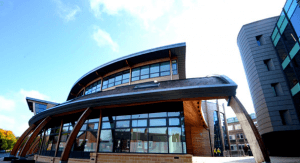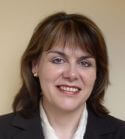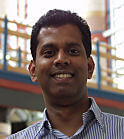Durham Business School

Colin carried out a varied programme of teachng and has gained substantial experience of lecturing and ruuning seminars at all levels during his time at Durham.
The Dean of the School, Professor Tony Antoniou is very grateful for the support that the FME has given for Colin’s Fellowship and quotes that “the experience with this Fellowship has been entirely positive”. The FME fellowship has not only enabled Colin himself to make a successful career switch, but it has also allowed the School to use his skills and knowledge productively in delivering the highest quality business and management education and research.
If you would like to know more the FME Fellowship Scheme – please contact the Director Mike Jones.
We have a Network of present and past FME Fellows who would be more than happy to answer any questions you might have in making the tranisition.
2nd ESRC/FME Fellowship awarded – this time to Bradford University School of Management
“My interest in converting to an academic career has been a long simmering one”
In October 2007 Olga Matthias joined Bradford University School of Management as an ESRC/FME Fellow for a period of three years.
of Management as an ESRC/FME Fellow for a period of three years.
The Dean, Professor Arthur Francis, is delighted to have Olga join his school and during her fellowship period she will have entry onto their DBA Programme and undertake her Doctorate as part of her transition from business into academia under the terms of her Fellowship.
Olga’s area of expertise is Operations Management and she has shown interest in joining Bradford’s Operations and Information Management Group – an area where there is a real shortage in the business world.
Olga has had considerable career experience in business consulting, working for a consulting group for ten years and has also been involved in executive education covering both hard and soft skills development within client organizations and also at the consultancy’s training Centre at Sundridge Park.
It is entirely due to the joint funding from the Economic Social Research Council and the FME that this Fellowship has been made possible and there are still Fellowships available.
The Cass Business School and Bradford University School of Management are the first to benefit from the new ESRC/FME FELLOWSHIP scheme.
As quoted by Olga “her interest in converting had been a long simmering one”, and sporadically over the last five years she had made tentative steps about enquiring into obtaining a lecturer appointment, but it was upon reading the article in The Times that she made the decision to contact the Director (Mike Jones) at the FME.
ASTON DO IT AGAIN ! ! !
 Anna Ackfeldt has spent many years working in the service sector prior to her decision to become an academic. Aston and FME Council believe she has the potential to be an outstanding contributor to management education and the FME Fellowship scheme will help her make the necessary adjustments. Anna will follow a comprehensive teaching programme, very similar to that of Dr Rudd (another success story – also based at Aston).
Anna Ackfeldt has spent many years working in the service sector prior to her decision to become an academic. Aston and FME Council believe she has the potential to be an outstanding contributor to management education and the FME Fellowship scheme will help her make the necessary adjustments. Anna will follow a comprehensive teaching programme, very similar to that of Dr Rudd (another success story – also based at Aston).
At the end of her two year fellowship, Anna will join the Marketing Group at Aston on completion of her PhD.
Aston are investing in the development of the Business School in commercial activities that will definitely reap future rewards.
Good News – THREE NEW FELLOWS JOIN THE FME RANKS
The summer months have been good to the FME who has seen its number of Fellows increase by three over the period. All three have considerable business management experience, together with relevant academic credentials and are most welcome additions to the FME Fellowship community.
 • Dr Julie Hodges has joined Durham University Business School as an FME Fellow for 2 years from the Royal Bank of Scotland. Sage Group Plc who has made a most generous donation into the FME Funds is sponsoring her Fellowship. Julie’s development programme will include periods of action research within the Sage organisation.
• Dr Julie Hodges has joined Durham University Business School as an FME Fellow for 2 years from the Royal Bank of Scotland. Sage Group Plc who has made a most generous donation into the FME Funds is sponsoring her Fellowship. Julie’s development programme will include periods of action research within the Sage organisation.
 • Mr Peter Lenney has joined Lancaster University Management School on a joint 2 year FME/ESRC Fellowship. Peter, who is in the latter stages of his PhD in Marketing, has a strong business background within the Chemical industry but wishes to pursue a second career in Business school academe.
• Mr Peter Lenney has joined Lancaster University Management School on a joint 2 year FME/ESRC Fellowship. Peter, who is in the latter stages of his PhD in Marketing, has a strong business background within the Chemical industry but wishes to pursue a second career in Business school academe.
 • Dr Chander Velu, a former Chevening Scholar and PhD student at Cambridge University has joined the Judge Business School on a 2 year FME/ESRC Fellowship. A Chartered Accountant by profession, Chander has considerable experience of Corporate Finance and international consultancy, working with such organisations as Price Waterhouse, Coopers and Booze Allen and Hamilton. More latterly, his work has concentrated on business innovation and strategy and he intends to continue in this field as he progresses his new academic career.
• Dr Chander Velu, a former Chevening Scholar and PhD student at Cambridge University has joined the Judge Business School on a 2 year FME/ESRC Fellowship. A Chartered Accountant by profession, Chander has considerable experience of Corporate Finance and international consultancy, working with such organisations as Price Waterhouse, Coopers and Booze Allen and Hamilton. More latterly, his work has concentrated on business innovation and strategy and he intends to continue in this field as he progresses his new academic career.
MAKING THE TRANSITION
Making the transition from industry to academia involves an exciting, but often difficult learning curve. Many of the skills that are important for commercial success are similar in academia for example, hard work, perseverance and occasionally an awareness of organisational politics. However, when lecturing, while it is relatively easy for people with commercial backgrounds to illustrate theoretical concepts to students with examples from their own experience, this is a small part of “being an academic”. Additionally and often forgotten by the employment institution, academia is a second career, following on from a successful commercial career. As such, individuals pursing this career profile are very often perceived as valuable, but “behind the game”.
FME recognise both the importance of a commercial and real world focus in the learning process, and additionally provide general financial and mentoring support. Through doing this they facilitate a steep and rapid learning curve, additional to the development programme in the host university.
As a recipient of an FME Fellowship I can testify to the significant benefits of this support. On receipt of the Fellowship I was assigned a personal mentor, who takes an active role in my development as an academic. This role involves monitoring my progress through the agreed personal development programme and additionally, acting as a sounding post for any difficulties experienced that might benefit from external, impartial advice. The development programme is related to the individual needs of the fellow, however in my case, this took the form of both teaching and research support.
From a teaching perspective, I applied for and won a place on the International Teachers Programme (ITP), this year hosted by IMD in Switzerland. Here I was exposed to a range of teaching and learning techniques, delivered by eminent scholars from around the world. Additionally, I attended a seminar at Harvard Business School where case methods teaching was dissected and discussed (particularly relevant for the largely strategy based subjects I teach). In terms of research assistance, FME sponsored me to attend international conferences within my research domain. All of the development agreed and supported by FME has presented me with some very specific skills, but has also increased my confidence as an academic. I now no longer feel like a manager trying to be an academic, but very much an academic ex-manager.
THANK YOU FME!
Dr John Rudd May 2006
BATH University School of Management

The FME Council have approved an award of an FME Teaching Fellowship at their recent Council Meeting in September 2005 to Mr Peter GRAHAM. The Fellowship is for a period of three years. The Dean, Professor Andrew Pettigrew, is delighted to have Peter join Bath University School of Management.
Before receiving the Fellowship, Peter joined present and former FME Fellows at the recent FME Fellows’s Day held on 7th September 2005. It was an ideal opportunity to meet and participate in the activities and form a network with other FME Fellows.

